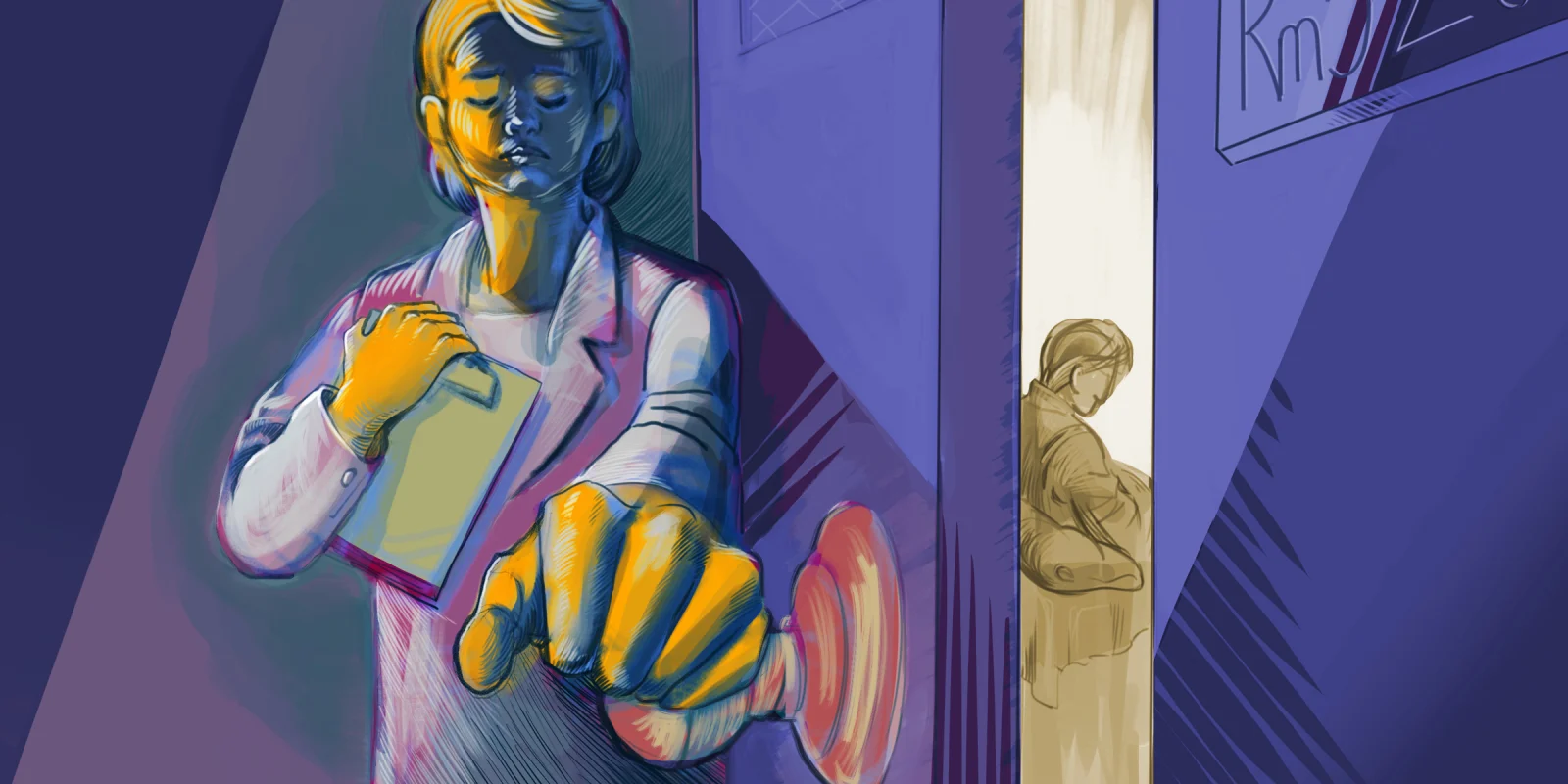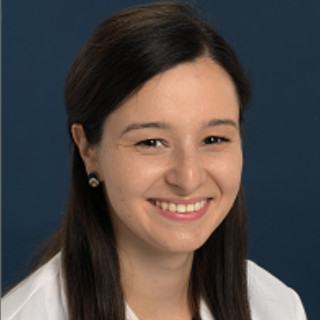It struck me recently that there are so many things that I do in medicine on a daily basis that used to bother me that no longer do. The very first time I ever saw the delivery of a baby in medical school, I experienced intense cramps of my own. The midwife, on the other hand, seemed entirely unaffected by the patient’s screams, and encouraged her to keep pushing as hard as she could to deliver her baby. Meanwhile, I was standing off to the side, counting down the minutes until I could get myself to a bottle of ibuprofen. This continued when I was an intern and started delivering babies for patients of my own. One of my attendings saw me put a heating pad on my belly one night shift and asked me if I was OK. I told her that I would get cramps each time I delivered a baby. She chuckled, and said, “That’s cute, you have uterine empathy.”
The sympathy cramps petered off as I became more confident as an obstetrician and started to be able to compartmentalize my feelings. My brain can discount things that would probably bother a normal person. A woman being raced up from the ED with a fetal head crowning is no big deal. I can throw on a pair of gloves in a hot second and get the baby out safely. I don’t even hear the screaming anymore. Bright red blood gushing out of someone gets my attention, but I’ve called for a hemorrhage kit while massaging a uterus internally with my entire arm up inside someone so many times that I’ve lost count. Someone moaning and groaning as I place an IUD will make me pause and say, “Am I OK to continue?” but if they say yes, I will continue as quickly as possible to place their IUD as gently as I can. It’s a different experience being in the hospital attending to a precipitous vaginal delivery where I know there is nothing I can do to control their pain except deliver their baby, versus being in the clinic and knowing that I could stop and readjust them or check in during their IUD placement. My ears subconsciously know that there is a control factor at play there.
There have been many studies about loss of empathy as medical students progress through their training. Empathy is a difficult concept to describe, as it is vague and can be defined in so many ways. Empathy has received considerable attention in the media on both a national and international level in many different fields of work, but particularly in the health professions. I was actually a participant in such a study myself. When I was in my first year of medical school, the Association of American Colleges of Osteopathic Medicine, in combination with researchers at Thomas Jefferson University and the Cleveland Clinic, spearheaded a study. We filled out surveys which measured empathy levels in about 6,000 DO students via a self-reported questionnaire. A few months later, I received an empathy score which placed me in the 60th percentile for female medical students, and 67th percentile for medical students of all gender identities. Their project is currently in its second phase, where the researchers began a five-year study of a cohort of medical school matriculants from matriculation through graduation. This phase is looking at when, how, and in what subgroups changes in empathy occur in osteopathic medical students.
Many medical students, including myself, develop cynical views as we progress through our medical education. I used to be a fierce patient advocate. Every story mattered. Every bit of history was important. As a medical student, I had all the time in the world to spend sitting at the bedside of a patient, obtaining a detailed history and doing an extremely thorough exam. Then I started residency, and my time became my most valuable resource. I spent days on the labor floor where I was unfathomably busy, and got paged each time I sat down to write a note. I would get up at insane hours in the morning to see all of the patients before my first OR case at 7:30 a.m. I would be booked for 15 minute visits on my clinic schedule for complex problems in non-English speaking patients.
My residency program director once gave me the feedback of not letting the systems-based issues frustrate me, and I have also received constructive feedback of being too idealistic. I don’t feel as if I’m any less empathetic than when I started medical school back in 2016, but I experience empathy in a different way. My empathy for the patient experience has waned, and my empathy for health care workers has grown. Sometimes when patients complain to me in triage that their nurse wasn’t being attentive enough to them, or that they had to wait a long time in the waiting room, or that I woke them up at 4:45 a.m. to examine their belly post-operatively, I get it, I really do. As a patient, I would want my time respected. I have grown frustrated when I am waiting in the doctor’s office. But I also get that things happen. The nurse that “wasn’t attentive enough” had five other much sicker patients in triage than someone with a mild headache. They had to wait a long time in the waiting room because their doctor was running behind as they had to give the news of a miscarriage to someone who had been trying to conceive. They were awoken at 4:45 a.m. because I was on the tail end of my 24 hour shift, and was trying to get all my notes done so that my 24 hour shift would not turn into a 26 hour shift like it often does.
It is always tough to break bad news such as a miscarriage, a surgical complication, or a stillbirth. I would be curious to retake the survey to see what my empathy score is these days, but I know that I also have a responsibility as a doctor to provide patients with excellent care, no matter my emotional state. I have become familiar with what most say is not the mundane, such as childbirth or surgery, but it allows me to be the eye of the storm during critical situations — and to safely deliver babies without having empathetic cramps of my own.
How has your empathy evolved during your training and practice? Share what percentile you think you are in the comments.
Kathleen Ackert is a resident physician in obstetrics & gynecology at St. Luke’s University Health Network. She is a graduate of the Philadelphia College of Osteopathic Medicine and Siena College. When she is not in the hospital, she can be found in coffee shops writing narrative medicine pieces or eating in restaurants that offer low-lit dining experiences. She enjoys exploring the latest fitness craze, watering her house plants, and instagramming pictures of fancy lattes at @caffeinewithkathleen. She was a 2021-2022 Doximity Op-Med Fellow, and continues as a 2022-2023 Doximity Op-Med Fellow.
Illustration by April Brust






